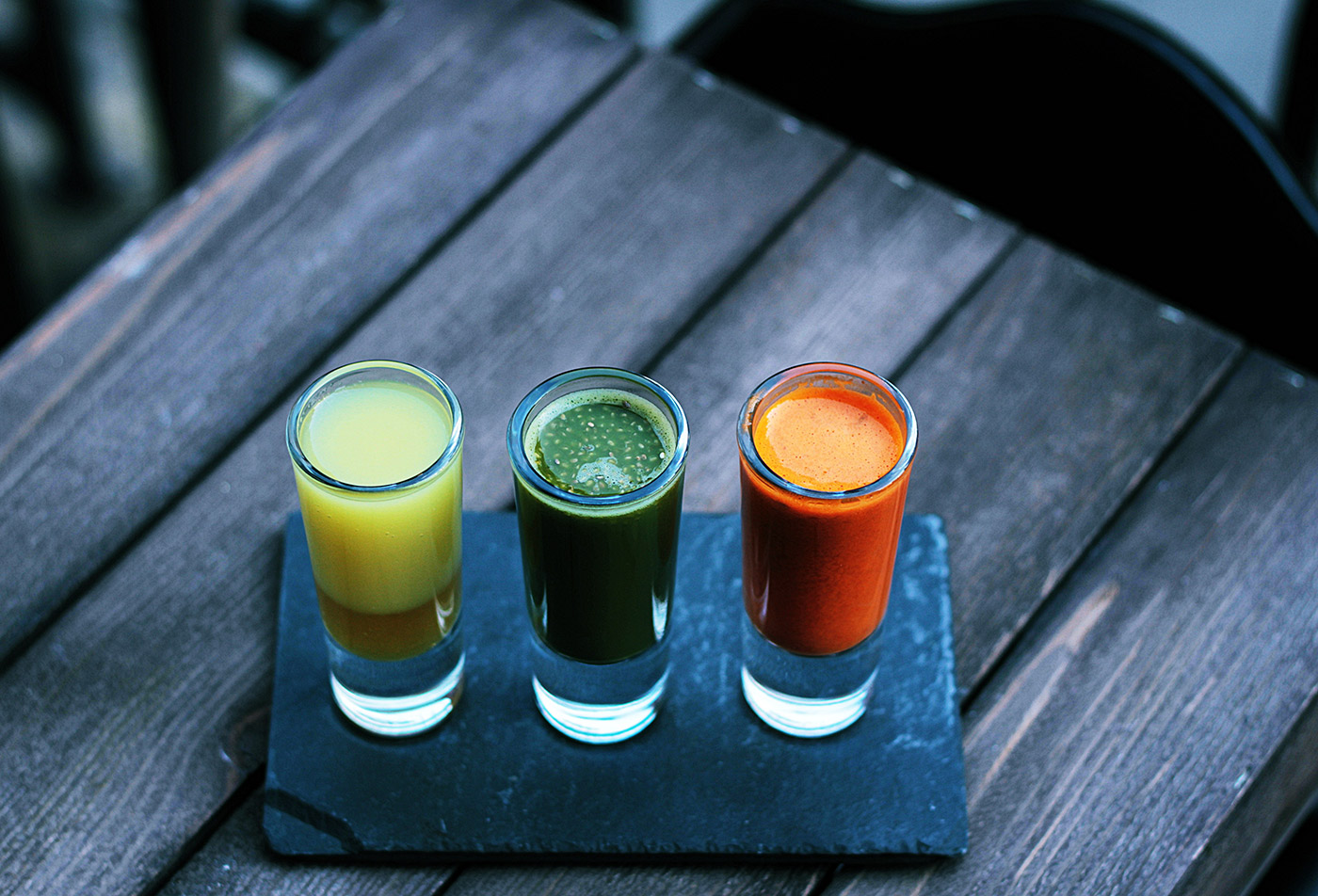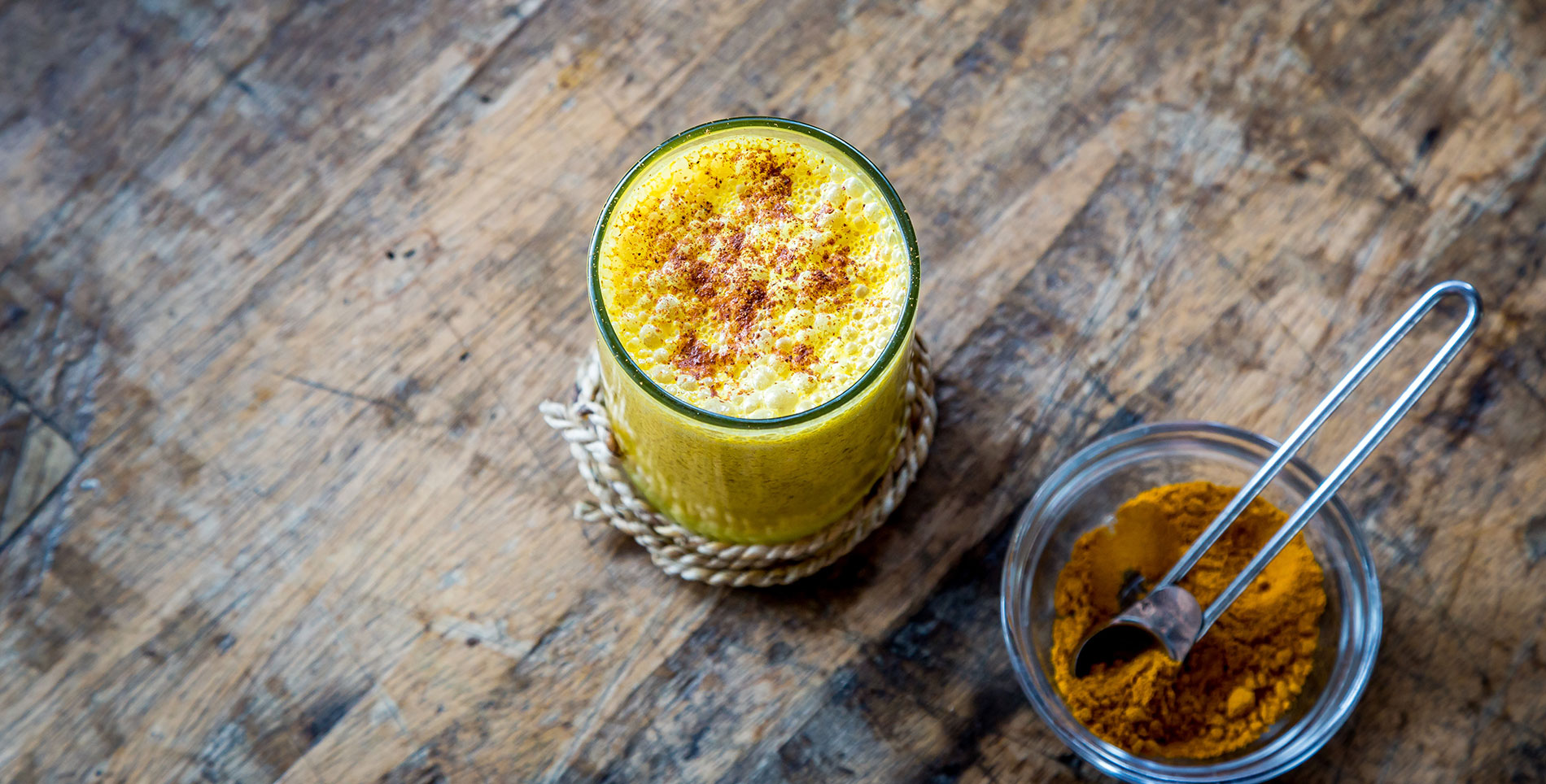Op-Ed
I am battling a nasty cold I caught returning home to Los Angeles after nearly six weeks in India. Hoping to ease my symptoms, I picked up medicine from the drugstore and set out to the grocery store to find some tea. While wandering the aisles at my local Trader Joe’s, I came across their Turmeric Ginger Coconut Beverage, reminiscent of the warm milk and turmeric my mother gave me to ease my sore throat growing up.
Before heading to the grocery store, I called my mom, who has worked at a doctor’s office for over twenty years, and has always been my go-to when it comes to making any sickness go away. She recommended I take Claritin-D, along with a handful of at-home remedies: drinking ginger tea, gargling with salt water, or drinking turmeric and milk (in June, I wrote about the growing trend for turmeric lattes in Los Angeles, and what a rise in turmeric lattes means within the context of Indian-American culture and in L.A. at large).
I’m never opposed to a quick and easy solution that might ease a cough or cold. When I used to drink my mother’s haldar doodh—turmeric and milk with a little bit of honey to soothe the throat and sweeten the taste—I went to school with a tongue stained yellow from the turmeric, which kids often noticed and poked fun at. Eventually, I asked my mom to stop making me drink it.
When it comes to alternative wellness in the West, trends often appropriate Eastern customs. One concern is financial: what happens to the price of turmeric, ghee or other such products when demand skyrockets? And what if demand increases so much that the people who depend on these ingredients—the ones who have used them in everyday meals for generations—can no longer afford to purchase them? The market volume for ghee reached an all-time high in 2017 before leveling off over the past two years.
Today, turmeric has become a trendy addition to savory foods and slightly sweetened lattes, and you can pay anywhere from $4 to $8 for a turmeric latte in L.A. Part of the frustration in watching your culture become appropriated is being reminded that your relationship with your culture as a person of color isn’t always within your power. That when the dominant culture within the U.S. decides turmeric is something to poke fun at, you distance yourself from it; and when it becomes a trend within that dominant culture, it’s suddenly cool to partake in.

While wellness stateside comes in a wide range of forms, there has been a rise in wellness trends that borrow from Eastern ideology, often claiming health benefits with no founding, and rarely giving credit to the cultures from which these trends are co-opted.
For example, to ease my cold, I likely wouldn’t have taken Power Dust, an herbal supplement made by Moon Juice that has “an invigorating adaptogenic blend of Cordyceps, Ginseng, Eleuthero, Astragalus, Ashwagandha, Rhodiola & Schisandra that targets stress and supports stamina, recovery, and a healthy immune system,” according to the company’s website.
Moon Juice calls itself “a healing force, an etheric potion, a cosmic beacon for those seeking out beauty, wellness and longevity. People come to us for daily nourishment, beauty foods, and high-powered natural remedies.” Similarly, the Whole Harmony Medicinal Herb Farm grows herbs used to make teas, tonics and elixirs. Goop recently published a piece about New York-based WTHN, which was presented as a “wellness brand and acupuncture studio [with] herbal formulas to help people find balance.” Similarly, ghee, or clarified butter, has been used in India for centuries. In recent years, it has become a part of wellness trends and is being sold at four times as much as butter per ounce at stores like Whole Foods, and is being incorporated into recipes with names like Moon Milk, which have the effect of reinforcing exotic notions of Indian culture and cuisines.
While I’m more than willing to drink my mother’s turmeric milk and listen to her and other family members’ advice when it comes to my health, I’m a bit more skeptical when I’m marketed similar solutions from wellness brands here in the U.S. For one, alternative wellness trends often either borrow from or bastardize Eastern medical practices, specifically from Indian culture. Why support such a brand either financially or ideologically when I can instead support my own family and culture?
Beyond that, it’s always worth examining the power dynamics at play. In countries like India, families rely on a wide range of medical care which often includes considering a holistic, herbal approach to wellness. Many wellness brands in the U.S. that absorb and integrate Eastern wellness practices often have a disclaimer to communicate that their products and practices do not necessarily cure anything (even if there is messaging on the product’s packaging and on the company’s websites that either suggests or outwardly claims health benefits). But for many who rely on these same wellness practices in the East, financial and cultural influences might make it so that turmeric, ghee and the like really are the first and final steps taken in self-care.
Ultimately, appropriating practices contribute to the devaluing of Eastern and immigrant ideology for Western gain. And here lies the inherent dichotomy of appropriation: when it values people’s cultural practices and beliefs, but not the people themselves. Who benefits? Who doesn’t?







Our comments section is for members only.
Join today to gain exclusive access.